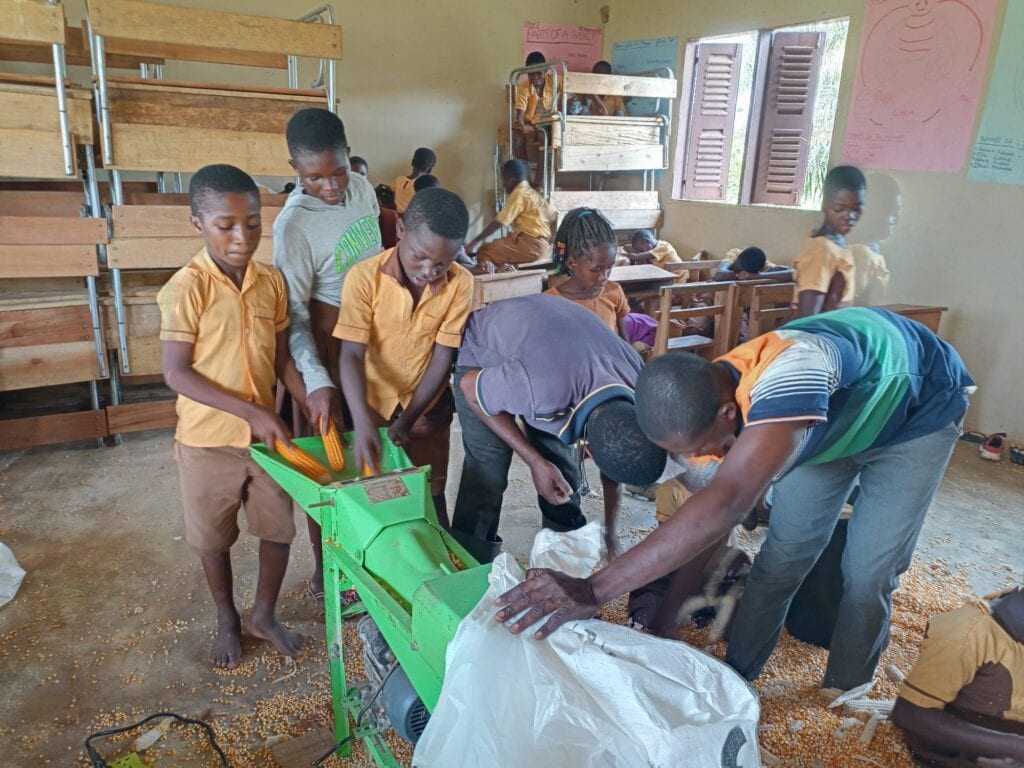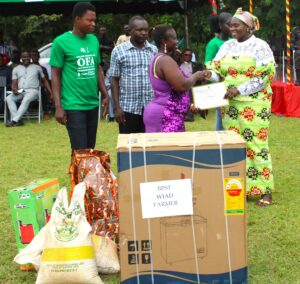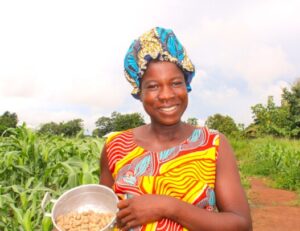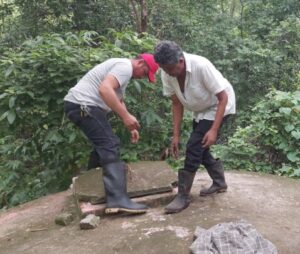Planting Seeds of Hope
In the rural communities in Ghana’s Ashanti Region, the sound of laughter and the sight of young hands busy with the soil tell a story of transformation. The fields are not just filled with crops—they’re filled with hope. This hope is being nurtured through Self-Help International’s Youth Agriculture Clubs, where young people are learning to grow more than just food. They are cultivating their future.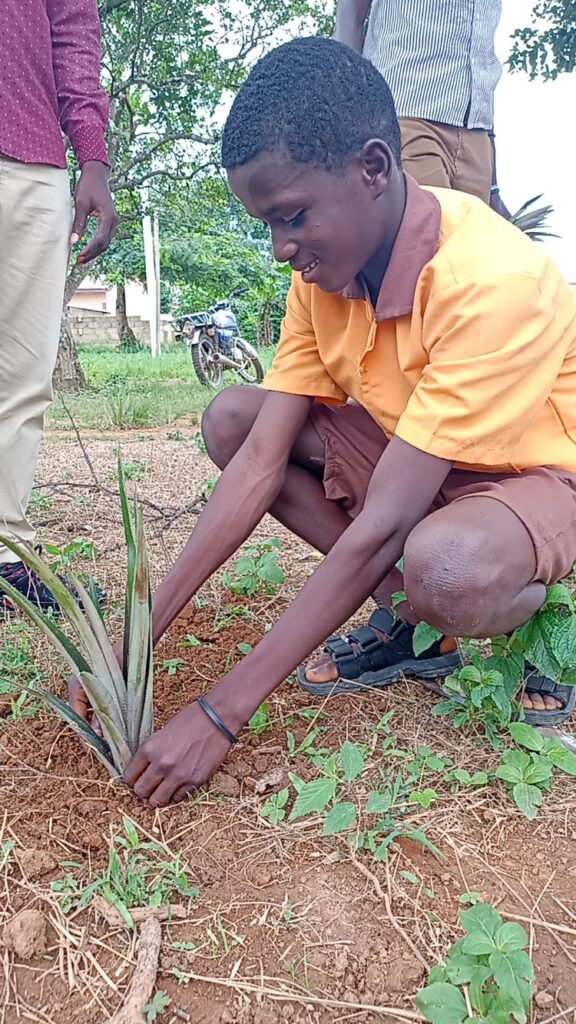
The Youth Agric Clubs, an initiative of Self-Help International’s Agriculture and Entrepreneurship Development (AED) team, are changing the narrative for rural youth. In many communities across Ghana, farming is often seen as a last resort—something for those without better options. But the AED team, with their passion and expertise, is working to change that perception.
Stephen Nyamekye is a member of the Kukubuso Agric Club. At 18, he stands tall among his peers, not just for his height but for his enthusiasm. “Before joining the Agric Club, I didn’t see a future in farming,” Stephen admits. “But now, I see farming as a business. In April, I took it upon myself to do lining, pegging, and planting in rows to prove to my parents that following good agronomic practices gives better yields than the traditional scattered planting, which lacks control. When we harvested in August, even though my parents planted on a larger plot, my mother admitted that my yields were greater.”
The AED team plays a pivotal role in making this transformation possible. With a focus on education and practical experience, they provide young people with the skills they need to thrive in agriculture. But it’s not just about growing crops—it’s about entrepreneurship. Through the program, the youth are taught how to manage small agricultural businesses, developing essential life skills that will serve them well beyond the fields.
Under the guidance of the AED team, the youth are trained in modern farming techniques such as crop rotation, proper seed spacing, and soil health management. The clubs are also introduced to improved seed varieties and organic farming practices that increase yield while protecting the environment. The youth are empowered not only with technical skills but with a sense of responsibility toward their land and their community. The team also arranges visits to successful farms and the agric center, showing the students firsthand what they can achieve with the right knowledge and effort.
Benjamin Bogene, a member of the Agric Club in Nkontomire, shares his excitement about what lies ahead. “I never thought I could make money from farming while still in school,” he says with a smile. “Now, I’m growing pineapples, which will not only provide fruit for us in school but also give me the chance to sell them at the market.”
The Agric Clubs are more than just after-school programs—they’re a lifeline for many young people who previously saw little opportunity in rural areas. The skills they are learning through Self-Help International’s support are helping them break the cycle of poverty that has trapped many families for generations.
Beyond individual success stories, the long-term vision of the Agric Clubs is even more profound. As more youth embrace agriculture and entrepreneurship, rural communities are becoming more sustainable. Instead of leaving their villages to seek uncertain futures in the city, these young people are choosing to stay, investing their energy into improving the land and livelihoods around them.
Self-Help International’s Agriculture and Entrepreneurship Development team continues to nurture this transformation, offering not only resources but inspiration. By planting the seeds of innovation and ambition in the hearts of these young people, the AED team is ensuring that the future of Ghana’s agriculture is in capable hands.
As Stephen and his fellow club members plant their seeds in the rich soil of Ghana, they are also planting seeds of change. With the guidance of the AED team, they are growing not just crops but brighter futures—for themselves, their families, and their entire communities.
